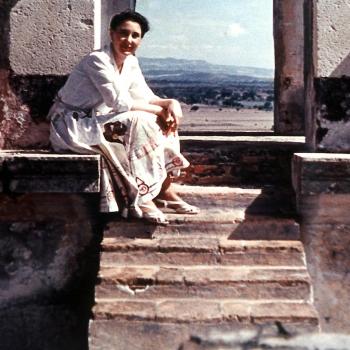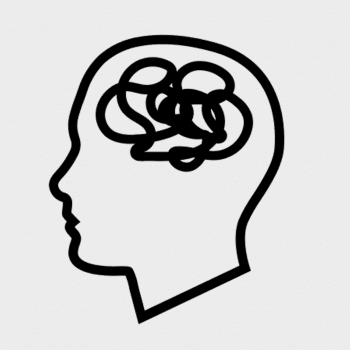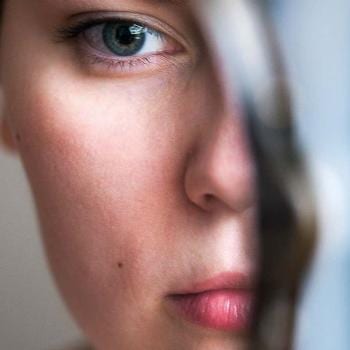I volunteer at a local juvenile detention facility. For several years now, I have run an exercise program for the teenagers, visiting the prison regularly to lead workout classes. And though my “service” aims to improve their physical health, I have cultivated relationships with these teens. They have opened my eyes and engaged my heart, and taught me more than a few important lessons:
-
Trauma is incredibly pervasive and damaging
Almost every single girl who opens up about her story shares some experience of trauma. Often, these include an abusive parent, a period of homelessness, or a sexual assault. The stories are sometimes quite shocking. But regardless of the precise nature of the trauma, these girls do not receive support for their recovery. And the effects touches every area of their life, from their spirituality to their educational attainment.
Research confirms the tragic consequences of trauma: Adverse Childhood Experiences (ACE) lead to long-lasting damage to mental, social, and physical health[1]. And they are common: according to SAMHSA, half of American children suffer chronic stress due to ACEs[2]. Though these rates are higher in low-income communities, it’s important to note that trauma doesn’t discriminate. Even—and perhaps especially – the most affluent communities experience ACEs. Broken cycles of human relationship, not poverty itself, generate trauma.
-
The most important thing: one stable, supportive adult relationship
The prevalence and damage of trauma didn’t mean that every girl I meet has been destroyed by her history of ACEs. No, some have a healthy spirit and enthusiasm for life. Some are succeeding in school and hold on to dreams for the future. What sets these girls apart? Over time, I saw that they shared a common denominator: they had someone looking out for them. Each of these girls pointed to an adult – grandmother, coach, older sibling, or parent – who continually loved and cared for them.
Research from the Harvard Center on the Developing Child confirms that the single most important protective factor against trauma is the presence of a supportive caregiver. As I’ve claimed before, we are made for and through relationship.
Just as broken human relationships generate trauma, only an intergenerational cycle of love will restore life. This has important consequences for our work for justice. One-and-done interventions will not work; we have to invest in communities. Throwing money at the problem will not solve it; we have to encounter and accompany those on the margins. We must constantly keep families and communities in mind as we strive to reform systems of inequality.
-
Human dignity doesn’t depend on our accomplishments
One does not “earn” their human dignity. Neither can one “lose” it through action, inaction, or experience. Human dignity is inherent to every person, as a child of God. As someone from a privileged economic and educational background, I am constantly tempted to ground my identity in my accomplishments. I am drawn again and again to measure my dignity in terms of my success or productivity. But relationship with those on the margins reminds that I, too, am broken, but that I, too, am unconditionally valuable. This allows me to escape the material reduction of my human person, and reawaken to my own true source of identity.
-
We can’t separate material needs from the spirit
In listening to the girls’ stories and questions for years, I have recognized a common thread: every single one of them longs for meaning. No matter their situation in life, their spirit searches for an answer to important questions of the heart. This longing for meaning is manifest in many ways: a desire for authentic connection, a struggle with the problem of evil, a need for a purpose to every single day they spent in prison, or wonder in front of hints of new life.
What does it meant that, in addressing underserved communities and individuals, organizations often neglect these fundamental questions of the heart? The need for meaning and relationship does not disappear when material needs are also present. In fact, because of the unity of mind and body, these needs are inextricably linked. Perhaps we should invert Maslow’s hierarchy of needs, and recognize that the needs of the spirit are not “secondary” needs of the human person.
Further reading recommendations
Our prison system is in desperate need of reform. There are great resources out there on the school-to-prison pipeline and the prison industrial complex.
For a nuanced and well-researched take, Michelle Alexander’s The New Jim Crow is an eye-opening assessment of the US’s system of mass incarceration.
[1] Felitti VJ, Anda RF, Nordenberg D, Williamson DF, Spitz AM, Edwards V, Koss MP, et al. The relationship of adult health status to childhood abuse and household dysfunction. American Journal of Preventive Medicine. 1998; 14:245-258.
[2] “Adverse Childhood Experiences (ACEs).” Center for the Application of Prevention Technologies, Substance Abuse and Mental Health Services Administration, www.samhsa.gov/capt/practicing-effective-prevention/prevention-behavioral-health/adverse-childhood-experiences.











